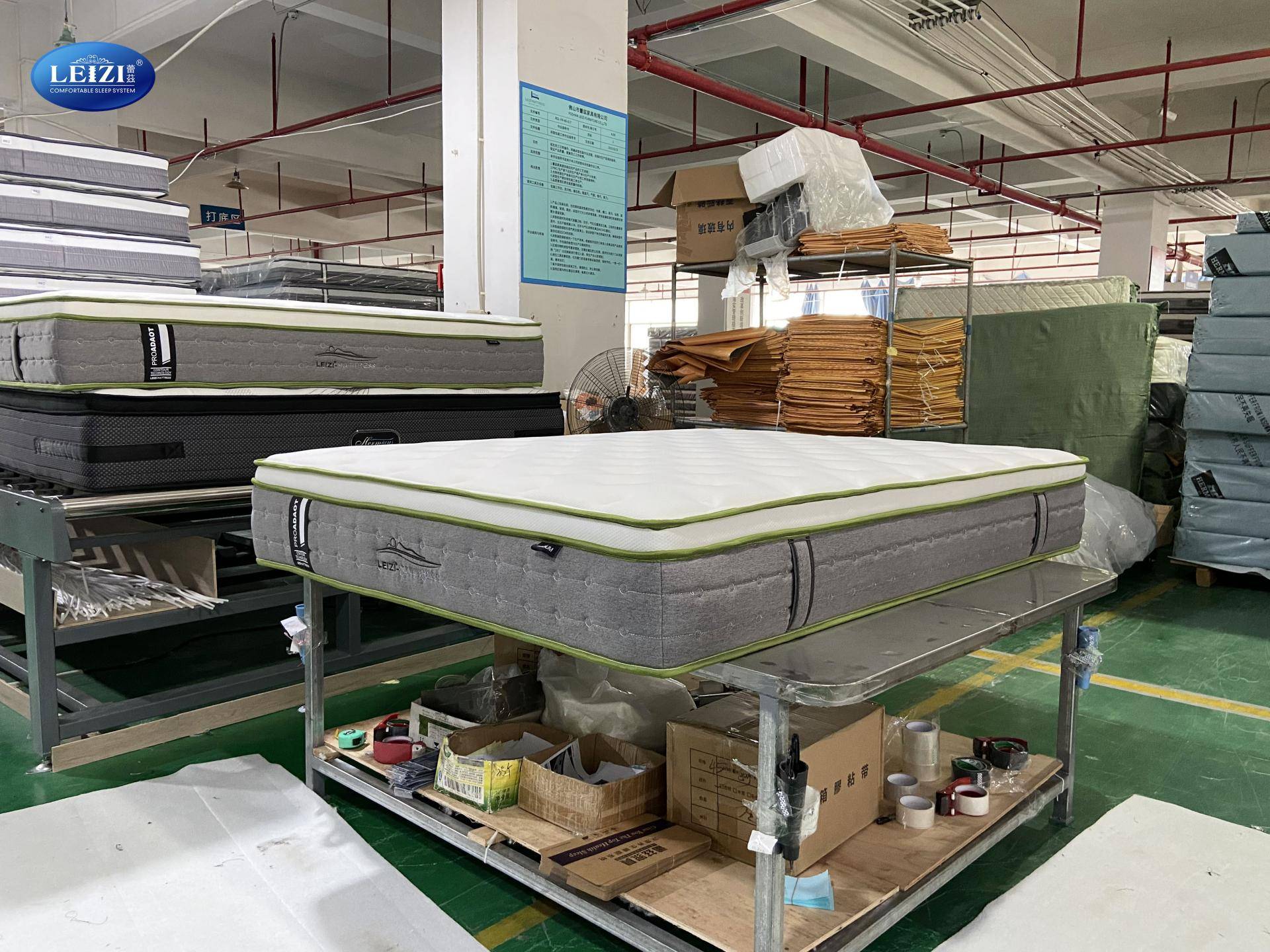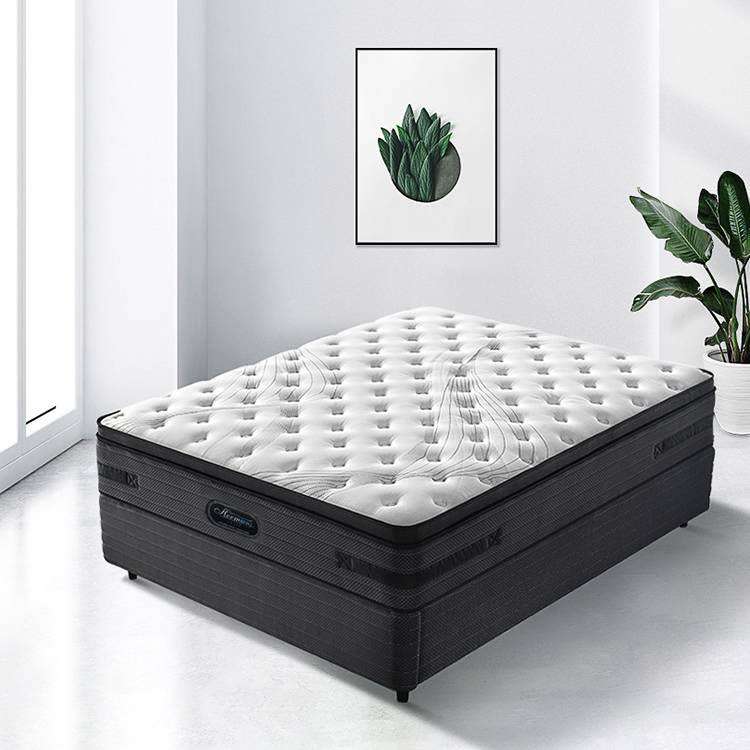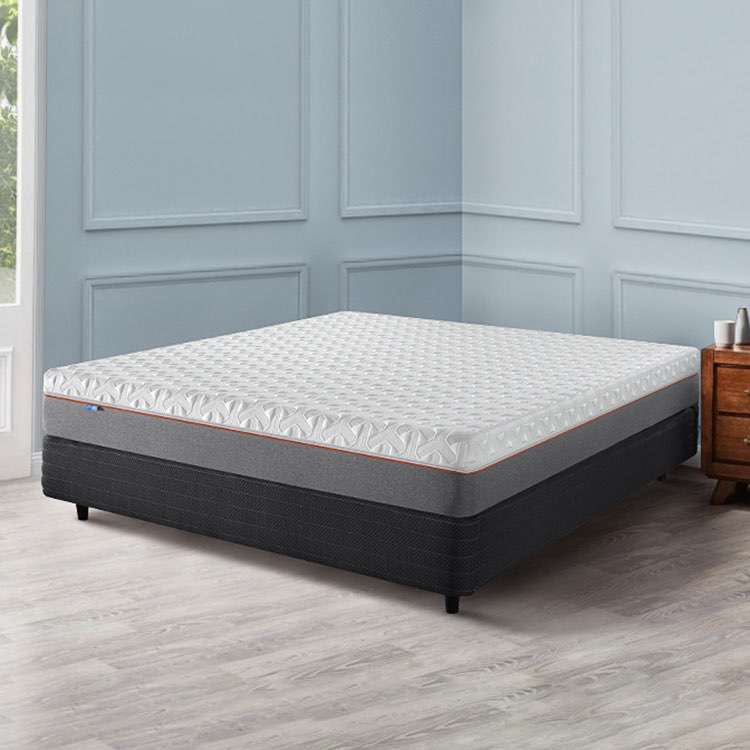What Mattress Thickness Affects?
 Foshan LEIZI Furniture Co., Ltd
Foshan LEIZI Furniture Co., Ltd  October 09,2024
October 09,2024
The thickness of a mattress holds a pivotal role in the realm of sleep quality, yet it often resides in the shadows of other considerations. However, whether you find solace atop a pillow top, relish the luxurious embrace of a euro top, or seek the balanced support of a hybrid, understanding the profound influence of mattress thickness is paramount. In this discourse, we embark on a journey to unravel the nuanced impact of mattress thickness on our nightly repose. From its profound implications for comfort and support to its enduring effects on durability, we shall explore the depths of this often-overlooked dimension. So, let us delve into the world where every inch holds the promise of restorative slumber and discover the profound essence of "What Mattress Thickness Affects?"
Understanding Mattress Thickness
Mattress thickness, often measured in inches, is not merely a superficial attribute but a fundamental determinant of sleep quality. It encompasses the depth of the mattress and plays a pivotal role in dictating its overall feel and performance. The thickness of a mattress is influenced by various factors, including the materials used in its construction, the type of mattress, and individual sleep preferences. It serves as a cornerstone for comfort and support, shaping the sleeping experience in profound ways. A thicker mattress typically offers more cushioning and better pressure relief, catering to diverse sleep positions and preferences. However, achieving the optimal balance between thickness and firmness is imperative to ensure proper spinal alignment and support for the body. As we delve deeper into the realm of mattress thickness, we unravel its multifaceted nature and appreciate its significance in facilitating restorative sleep.
Effects of Mattress Thickness on Comfort and Support
The thickness of a mattress plays a significant role in determining the level of comfort and support it provides during sleep. A thicker mattress tends to offer enhanced comfort by providing more cushioning and surface area for the body to rest upon. This additional padding can help alleviate pressure points, especially for side sleepers or individuals with joint pain, resulting in a more restful and rejuvenating sleep experience.
Moreover, mattress thickness directly influences the level of support the mattress offers. Thicker mattresses typically contain more layers of supportive materials, such as high-density foam or innerspring coils, which contribute to better spinal alignment and distribution of body weight. Proper spinal alignment is crucial for preventing discomfort and reducing the risk of waking up with aches and pains.
However, it's essential to strike the right balance between thickness and firmness to ensure optimal support. While a thicker mattress may offer ample cushioning, it must also provide adequate support to maintain proper alignment of the spine and prevent sagging over time. Therefore, individuals should consider their body weight, sleep position, and personal preferences when selecting the ideal thickness for their mattress, ensuring a harmonious blend of comfort and support for a restorative night's sleep.
Mattress Thickness and Durability
The thickness of a mattress is closely intertwined with its durability and longevity. Thicker mattresses often boast a more robust construction, featuring additional layers of padding and support materials. These extra layers not only enhance comfort but also contribute to the overall durability of the mattress.
The thickness of a mattress provides ample space for multiple layers of high-quality materials, such as memory foam, latex, or innerspring coils, which are essential for withstanding regular wear and tear. These materials are designed to retain their shape and resilience over time, ensuring that the mattress maintains its supportive properties for years to come.
Furthermore, thicker mattresses are less prone to sagging and indentations, as they distribute weight more evenly across the surface. Proper maintenance, such as rotating the mattress regularly and using a supportive bed frame, can further prolong its lifespan.
Comparing Different Types of Thick Mattresses
When exploring the realm of thick mattresses, various options present themselves, each with its unique features and benefits. Pillow top mattresses, for instance, are renowned for their plush feel, thanks to an additional layer of padding sewn onto the top surface. This luxurious cushioning provides a cloud-like comfort that appeals to many sleepers seeking a softer sleeping surface.
In contrast, euro top mattresses offer a similar level of plushness but with a more seamless appearance. The padding on a euro top extends to the edges of the mattress, creating a uniform surface that blends seamlessly with the rest of the bed.
Hybrid mattresses combine the best of both worlds, blending the support of traditional innerspring coils with the comfort of foam or latex layers. This innovative design caters to a wide range of sleep preferences, offering a balanced combination of support, cushioning, and durability.
Ultimately, the choice between these different types of thick mattresses depends on individual preferences for firmness, cushioning, and overall sleep experience. By understanding the unique characteristics of each type, individuals can make an informed decision that aligns with their specific needs and preferences.
Factors to Consider When Choosing Mattress Thickness
Several key factors should be taken into account when selecting the thickness of a mattress to ensure an optimal sleep experience. Firstly, consider your body weight and sleep position preferences. Heavier individuals may require a thicker mattress to provide adequate support and prevent sinking, while lighter individuals may find thinner mattresses more comfortable.
Secondly, assess the size of your room and the compatibility of the mattress with your bed frame. A thicker mattress may be more visually appealing in larger rooms but could overwhelm smaller spaces. Additionally, ensure that the mattress thickness complements the height of your bed frame to maintain a cohesive aesthetic.
Lastly, consider your budget and long-term investment. Thicker mattresses often come with a higher price tag due to their additional padding and support layers. While investing in a thicker mattress can offer enhanced comfort and durability, it's essential to strike a balance between quality and affordability that aligns with your financial constraints and sleep needs. By carefully considering these factors, you can choose the perfect mattress thickness to support a restful and rejuvenating night's sleep.
In conclusion, mattress thickness is a critical factor that affects comfort, support, and durability. Whether you prefer the plush feel of a pillow top mattress, the seamless look of a euro top, or the balanced support of a hybrid, understanding how mattress thickness impacts your sleep experience is essential. By considering factors such as material composition, mattress type, and personal preferences, you can find the perfect thickness to ensure a restful night's sleep for years to come.













